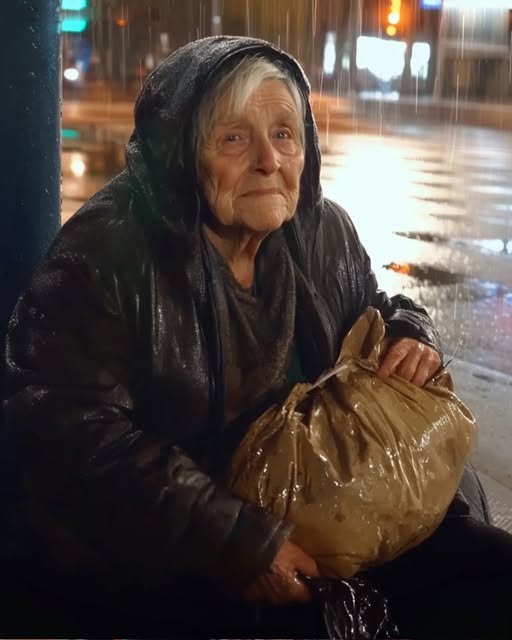One rainy evening, while walking home, I noticed her—an elderly woman huddled under a streetlamp, soaked from head to toe. She looked fragile, her face marked by years of hardship, yet her eyes… her eyes were strikingly clear. They reminded me so much of my mother, who had passed away just a year ago.
I’m not sure why, but I stopped. “Why don’t you go somewhere warm?” I asked.
She shivered and shrugged. “I’m tired of moving from one shelter to another. It feels pointless.”
Without really thinking, I blurted out, “If you don’t want to keep moving, you can stay in my garage for as long as you need. It’s small and old, but livable. There’s running water, a toilet… I’ll clean it up this weekend, at least.”
She looked at me, stunned. “Are you serious?”
I nodded.
She exhaled, a mixture of relief and resignation. “I’ve got nothing left to lose… okay.”
So I brought her home, showed her the garage, apologized for the mess, and left her with blankets. She didn’t seem fazed. “A roof over my head, and peace… that’s enough,” she said, giving me a faint smile.
Two days later, I went to check on her, just to see if she needed anything. Peeking through the window… I froze.
I pushed the door open, shock in my voice. “Oh my God… what happened here?!”
The cluttered, dusty garage had been transformed.
Curtains made from old bedsheets hung neatly, a tiny rug I barely remembered owning lay perfectly in place, and the mess I had ignored was now sorted and stacked. But the most striking thing was the table at the center—covered in pencils, notebooks, and sheets of paper filled with sketches.
“You… draw?” I asked, amazed.
She looked up from folding a blanket, calm and composed. “I used to. Before life got hard. Art was my world once.”
The drawings were breathtaking—delicate pencil strokes of birds, trees, a mother embracing her child. Every line full of emotion.
“How… did you do all this in two days?” I asked, still in awe.
She chuckled softly. “When your mind is quiet and you have time, your hands remember what they love.”
I hesitated, unsure. “I thought… I thought something terrible had happened.”
“You’re not the first to assume that,” she said gently.
She introduced herself as Inez.
In the following weeks, we settled into a quiet routine. I brought her warm meals, and she helped around the house—fixing my shed door, cleaning gutters, even assisting my teenage son with an art project. He ran in one afternoon, waving his drawing. “Mom! She’s like a wizard with art!”
One evening, sipping tea outside, I asked softly, “If you don’t mind… what happened?”
She sighed—not sad, just weary. “I had a husband. He died suddenly. I spiraled… lost my home, my savings. My son didn’t know how to help. We drifted apart.”
My heart tightened. Homelessness became real to me, no longer just an abstract idea. It had a face, a story, a soul.
One morning, I found a small canvas by the garage door—a painting of my backyard, bathed in morning light, the dew almost tangible. Taped to the back was a note:
“For giving me more than a roof. For reminding me I still exist.”
Word spread fast. My sister saw the painting, shared it online, and soon local galleries reached out. People wanted to buy her work.
Inez was overwhelmed. “I don’t even have a bank account,” she whispered.
We fixed that.
Three months later, Inez had a studio apartment, funded by her first sales. She was still healing, still rebuilding—but with dignity and peace restored.
I visited her weekly. Sometimes we shared coffee and talked, sometimes she showed me new art, sometimes we just sat quietly.
The day she moved out, I stood in the empty garage and cried. Not tears of sadness, but of joy—witnessing something beautiful grow from darkness.
Here’s what I learned: People aren’t defined by their worst moments. Sometimes, all they need is a little shelter, a little kindness, to rediscover themselves.
If this story touched you even a little, share it. Kindness doesn’t need to be grand—it just needs to be real.

God bless your kind heart!